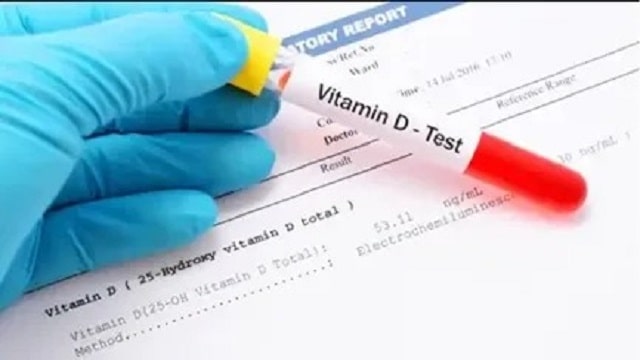25-OH Vitamin D Total
Vitamin D is a nutrient that is essential for bone growth and health. Without it, bones become brittle, damaged, and unable to repair themselves normally. This condition can lead to diseases called rickets in children and osteomalacia in children and adults.
Vitamin D also helps control the absorption of the minerals calcium, phosphate, and (to a lesser extent) magnesium from food as it passes through the intestines. This vitamin is also thought to help prevent many other diseases, including:
- Disorders of the immune system.
- Some forms of cancer.
- Heart disease.
- Blood vessel disorders.
- And diseases that show that the Vitamin D receptor (VDR) can influence the expression of a variety of other genes.
Vitamin D is a fat-soluble vitamin found naturally in only a few foods. For example, liver and fatty fish like salmon. However, the main source of this vitamin is from exposure to sunlight.
The body is able to form vitamin D through exposure to sunlight. This is why vitamin D is sometimes referred to as the sunshine vitamin. It is important to note that the vitamin D produced in humans and animals is slightly different from that produced in plants. The vitamin D formed in animals is known as vitamin D3 or cholecalciferol, while the vitamin D formed in plants is known as vitamin D2 or ergocalciferol.
Both vitamin D2 and vitamin D3 are converted in the liver to 25-hydroxy vitamin D. This is the main active form of vitamin D stored in the body. When a doctor orders a blood test to measure the level of 25-hydroxy vitamin D in a person, the test can be done in a laboratory.
The test for 25-dihydroxy-vitamin D is used to check that the body has adequate supplies of vitamin D. Sometimes, doctors will also ask the lab to measure another active form of vitamin D known as 1,25-dihydroxy vitamin D, if they suspect the patient has a condition where the body is producing too much of this form of the vitamin such as sarcoidosis or lymphoma.
Why Check Total 25-OH Vitamin D?
Total of 25-OH vitamin D checks are performed to investigate problems related to bone metabolism, blood mineral levels, or parathyroid function.
This is because vitamin D is a fat-soluble vitamin and is absorbed in the intestines like fat. Total 25-OH vitamin D testing is also sometimes used in people with diseases that interfere with fat absorption, such as cystic fibrosis, malabsorption, and Crohn’s disease, to make sure they have enough vitamin D.
The 25-OH total vitamin D test is also used in people who are taking vitamin D supplements, to make sure they have normal levels of vitamin D. Your doctor may recommend a 25-OH total vitamin D test for several reasons. The test is to find out if someone has too much or too little vitamin D, which is causing bone weakness or other abnormalities.
People who are at high risk of having low vitamin D levels and may need a 25-OH vitamin D check include:
- People who don’t get much exposure to sunlight.
- Parent.
- People with diabetes.
- Babies who are only breastfed.
- People who have had gastric bypass surgery.
- People who have diseases that affect the intestines and make it difficult for the body to absorb nutrients, such as Crohn’s disease.
Your doctor may also recommend checking your total 25-OH vitamin D levels to see the results of the treatment therapy that has been carried out.
When Should You Check Your Total 25-OH Vitamin D?
A total 25-OH vitamin D test is often done as part of a general checkup for people who may be deficient in vitamin D. Such as older people and those who rarely get much sunlight from outside. People with kidney disease and some digestive disorders are also advised to have a total 25-OH vitamin D test. So are people who regularly take vitamin D supplements.
A total 25-OH vitamin D test may also be ordered if someone has abnormal levels of calcium, phosphate, or magnesium in their blood. It can also be used to diagnose some forms of bone disease.
If the blood calcium level is low or the person has symptoms of vitamin D deficiency, bone malformations in children (rickets) and brittle bones or fractures in adults (osteomalacia), a total 25-OH vitamin D check is necessary to identify vitamin D deficiency.
A total 25-OH vitamin D test can also be used to help diagnose or monitor problems with parathyroid gland function, since parathyroid hormone (PTH) is essential for vitamin D activation.
How to Do It?
Checking vitamin D 25-OH is done by taking a blood sample by inserting a needle into a vein in the arm. Then the sample will be examined in the laboratory.
Where To Do It?
Vitamin D 25-OH checks can be done at hospitals and health laboratories. To be able to do a vitamin D 25-OH check, you must first get a doctor’s examination and recommendation.

